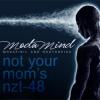SSRIs may help some people, but the idea that it is because they have "low serotonin" that the SSRI somehow "fixes" was already pretty much known to be untrue in academia by the 70s-80s. The "serotonin hypothesis" got legs because it was used as a marketing meme by the pharma companies until eventually the FDA prohibited them from doing that on the basis of lack of evidence.
I'm well aware of the problems with the "serotonin deficiency" explanation for depression; I'm not trying to challenge this because I have zero knowledge of neuroscience.
But what I'm saying is: when you observe certain types of people you consider to be joyful, you notice similar traits, i.e. they're usually very social (work social jobs), extroverted, empathetic, warm, anti-irritable (easy-going), live for fun and adventure, etc. These common traits of happy people have been observed by today's positive psychologists, e.g. Martin Seligman.
Now, isn't serotonin typically known to increase the tendency towards these types of traits/ behaviours? Isn't serotonin generally considered to foster social comfort? Isn't it known to reduce social anxiety, obsessive compulsive behaviour, shyness, negative rumination? When you take a person who is socially avoidant, introverted, irritable, cold, insecure, with anti-social tendencies, and a propensity for favouring intellectualization over having fun experiences - and give them some and SSRI or serotonin-boosting supplement (e.g. 5-HTP), wouldn't it be logical to conclude that these traits would soften, and, overtime, slowly reverse?
With that said, serotonin is doing SOMETHING, isn't it? I'm not saying it helps "depression" - I avoid use of that word because it carries different connotations to different people. A highly-motivated (almost compulsively motivated) person who is low on serotonin but high on dopamine may look perfectly fine (just irritable and anxious) to a person who is low on dopamine but high on serotonin (slow moving, lethargic, apathetic, but not socially insecure or fearful), whereas the high-dopamine person would admire the person with low-dopamine because he/she never seems "wound up" or "agitated." So let's put aside the word "depression," (because that's all it is, a word, like any other, that struggles to qualify something). I'm not saying SSRI's cure "depression." I'm saying SSRI's help symptoms of "low serotonin," many of which - when clumped together - have been given the label "depressive disorder."
If a person thinks taking a pill will solve their problems, they need to get a better grip on reality. But if they're looking for a "tool" to give them a sense of social comfort as well as other benefits, then it's worth a try.
Now, I know what you're referring to when you say that serotonin doesn't help depression, because if it did, the symptoms would go away right away (and not take 3-4 weeks). Thus, the SSRI's must be performing some other action. But there must be some other reason for that... (I don't see this as a logical way to dismiss the serotonin-hypothesis).
The thing is we don't even really know what SSRIs really do in the brain, so I think even to say that they "increase serotonin," for example, is questionable. There are, for example, hypotheses that they actually work (when they do) by desensitizing certain receptors in certain parts of the brain to serotonin. In other words, SSRIs might actually effectively lower serotonin. Nobody really seems to know. It also seems to depend crucially on which parts of the brain and which serotonin and other receptors are affected. So I think to link personality traits in a simple way to specific neurotransmitters is problematic.
By the way, there is some research (I believe including brain imaging) indicating that SSRIs do have an immediate effect on a person's brain response to positive and negative environmental and interpersonal clues. What takes 6 weeks in this hypothesis is the retraining of the brain due to this removal of negative reinforcement, but the actual suppression of negative environmental clues supposedly starts with the first pill. If they are right. It would make some sense. You can try to google the research. An interesting recommendation that would make sense in this regard is that a person who takes an SSRI but stays in his room will not respond to the SSRI - for the retraining to happen you need to get out and get exposed to social clues. So an SSRI should be especially helpful to someone (like me) who tends to respond very negatively to social clues. (I'll come back from a bar contemplating suicide because I feel nobody wants to talk to me.)
I so want to feel better but I can't get myself to take the damn pills though. What if I can't have sex ever again as a result of the drug? Why is everything a catch-22?
I realize we don't really understand what the drug actually does in the brain, so I won't comment further about that.
I see how it could be problematic to correlate themes of behaviours with single, specific neurotransmitters, but from my own observation there seems to be something to this. When I read, for example, that low serotonin lessens common sense - and then I take an SSRI and start to come down to earth a little more, become more practical, and think about more "common sensical" things - which I had neglected previously - it seems like there's some truth to this - however obscure or incomplete the puzzle may be at this current time.
Thus, a person who seems to be "up in the air" and experiences symptoms of dissociation, or self-neglect, or who isolates himself and generally has problems in the practical necessities of his/her life, e.g. work, friends, relationships, home up keeping, self-nurturing, etc. - such a person might have a good chance of benefiting from boosting the serotonin system. I know it's an over-simplification, but wouldn't it be a decent framework to start with, i.e. to determine what "kind" of depression you suffer from?
I think the problem is what people who up to their GP's complaining of vague "depressive" symptoms even though they have all the check marks of "high serotonin" (however vague or incomplete that checklist may be), and they're given an SSRI. Um, recipe for disaster? The problem, as I see it, is that big pharma has taken the "low serotonin = depressive symptoms" and generalized it to make profits from a greater number of people. That doesn't mean "low serotonin = depressive symptoms" is a myth altogether. Wouldn't an imbalance (overabundance or depletion) of any neurotransmitter lead to problems?
Of course, what I'm saying is based on the ideas of psychiatrists in the field today who have simplified their knowledge to communicate it to the lays-person like myself - and it can all be overturned tomorrow... so who really knows. I just get why people "demonize" serotonin-boosting drugs.
Yea, we definitely can't sit in our rooms and think a pill will change our brains. It's a tool, and nothing really more. We have to hit the problem from all angles - getting our nutrition right, our cognition right, our social life right, our physicality right, our emotions right, our career right, our lifestyle right, etc. In fact, taking an SSRI without any plans to take actions in our lives will probably make us less likely to take those actions. It definitely is a tricky situation, which is why I view the drugs as tools. Changing the brain takes more than swallowing a pill. You have to go tackle your problems. Taking real action is what our brains and biology are designed to respond to - only that will lead to permanent change.
You said: I so want to feel better but I can't get myself to take the damn pills though. What if I can't have sex ever again as a result of the drug? Why is everything a catch-22?
My sex drive hasn't diminished, but that's just me. I think I might actually be hornier since starting up again. Not to say there might not be problems long term; I can only report my personal experience.
Edited by pheanix997, 18 April 2014 - 03:41 PM.


















































